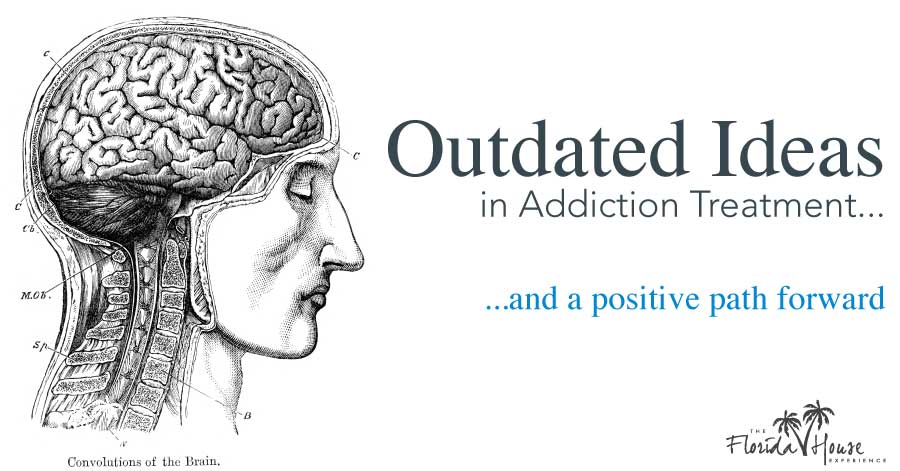
Humans have a relationship with addictive substances at least as old as recorded history. Alcohol consumption is well documented in ancient cultures. Chinese texts refer often to the opium poppy, and it’s a known fact that the “wisest” members of societies in India, Southeast Asia, and the early Americas used hallucinogenic substances to have spiritual visions.
The basic nature of addiction has been around for a long time, but as times have changed, so have the ways in which society views and treats addiction. Over time, we’ve tried to address addiction in many different ways, some of them more effective than others, but today, it seems like we’re finally getting a grasp on the solutions needed to provide effective treatment.
In this article, we’re going to go back in time and look at some of the ways we’ve tried to treat addiction over the years, why they failed and the lessons that have allowed society to gradually move forward.
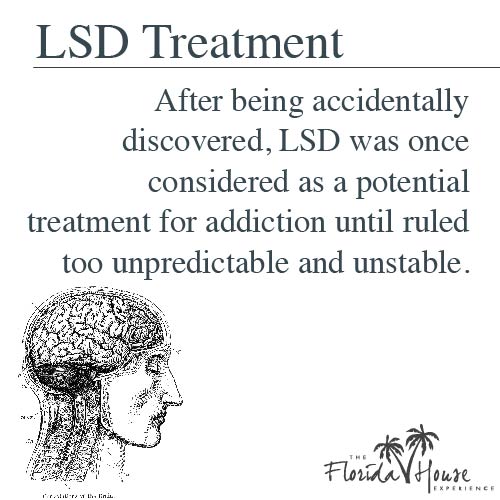 The Well-Intentioned
The Well-Intentioned
In the 1930s, a researcher discovered LSD by accident after trying to find the cause of a widespread plague caused by eating bread made with contaminated wheat. That researcher, Albert Hoffman, isolated the contaminant — a fungus called ergot — and accidentally consumed particles. On his way home, Hoffman reported having an out-of-body experience. This prompted him to start using the newly discovered hallucinogen on himself, to test its capabilities.
For the next few decades, groups of researchers performed many studies using this new and miraculous compound, but few were as prominent as a series of studies testing whether or not LSD could be effectively used to treat addiction, specifically alcoholism. Surprisingly, some of the results actually promising, but overall, it was concluded that LSD was far from a controlled, stable way to treat anything effectively.
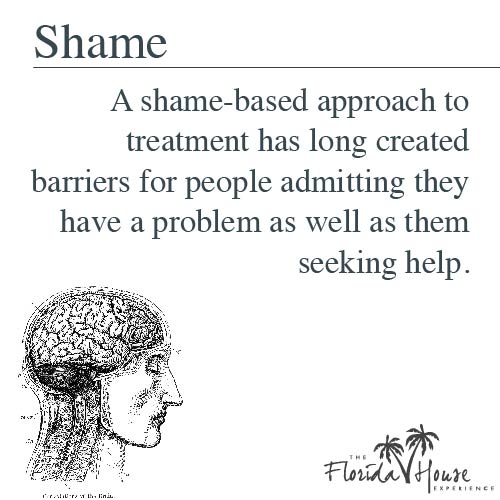 The Misunderstood
The Misunderstood
Shame-based “treatment” has been a hallmark of how society views addiction in the United States and all over the globe for many years. It wasn’t so much a way that rehab was handled as the way it affected how addicts were thought about for many years, something that still lingers today.
Nothing highlights the dangers of shame-based treatment more than looking at some prominent celebrities who struggled with addiction in a very public way: actors like Philip Seymour Hoffman and Robin Williams, two very high-profile celebrity deaths in the last decade.
When celebrities come to terms with their addiction publicly, they’re treated like lesser versions of the people than the public thought they were in the past. In the cases mentioned, both men were in 12-step groups mere days before their suicides.
The shame that has marked addiction isn’t limited to celebrity deaths. In the United States, there’s a history of treating addiction as a moral issue instead of health problem, and it’s destroyed the lives of countless addicts.
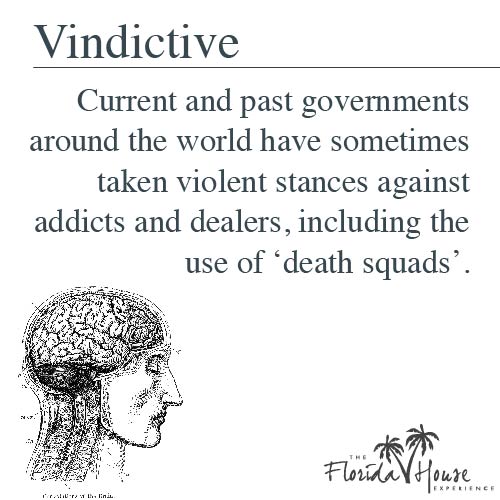 The Abusive
The Abusive
There are cases both historically and in the modern era, of extreme addiction treatment strategies. For example, the President of the Philippines, Rodrigo Duterte, has led a bloody campaign against drug addiction. It’s estimated that this draconian policy has led to over 7,000 deaths, even as Duterte struggles with substance abuse issues himself.
In Russia, there’s an “addiction treatment center” that consists of prison-style rooms where addicts are restrained and forced to stop using, called “the city without drugs.”
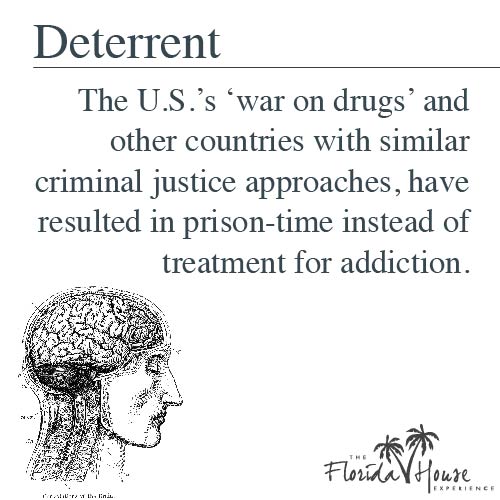 The Deterrent
The Deterrent
One of the most widespread methods of”treating” drug addiction around the world is to treat drug users as criminals. It would take hours to outline the entire history of America’s war on drugs, but it’s far from straightforward. The fact is that the policies started during the Nixon administration and continuing until today are representative of the wrong way of viewing drug use and abuse. An Obama administration drug czar even went as far as labeling mandatory minimum sentencing for low-level drug offenders as “inhumane.”
These examples aren’t limited to the United States either. Southeast Asian countries are known for harsh drug laws, even enforcing tough policies on foreign tourists. According to The Independent, Nigeria, The United Arab Emirates, Turkey and South Africa are among the countries with the harshest sentencing requirements for drug possession.
The Fraudulent
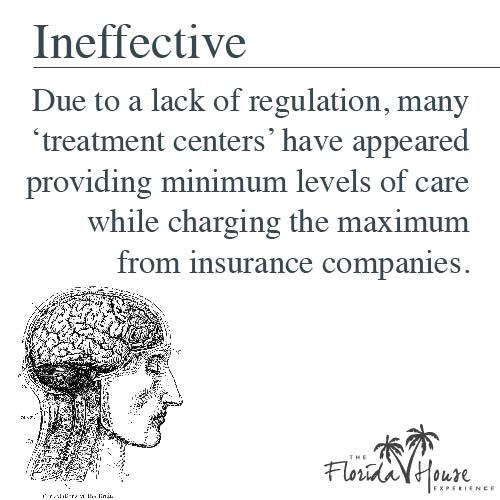
Though not exactly an actual attempt at rehab, the earlier years of the opioid crisis in America put a black mark on many regions known for being home to a large concentration of rehab facilities. Unfortunately, South Florida was one of them.
In the early 2010s, these”facilities,” which were more like private homes that housed addicts than actual addiction treatment centers, took the money of worried families from all over the country and housed patients. They made sure residents had access to drugs to keep the money flowing into their “treatment centers.”
The only good thing that came out of this era is that it forced the government to start crafting policy to define a definition of rehab and allowed treatment centers like FHE Health to show South Florida what real, effective rehab looked like.
Moving Forward…
Many countries and cultures have been slow to learn from past mistakes, and many societies around the world still treat addiction like a moral defect and addicts like people that deserve to be shamed. Slowly, however, society has made small changes to better serve the needs of individuals struggling with addiction.
Some countries have decriminalized drug use and possession, to varying degrees, but in countries where drugs are more accepted, the world hasn’t ended. In fact, completely the opposite has occurred. Portugal, steeped in a heroin crisis, decided to get radical with its drug laws and stop punishing drug offenders at all. In the years that followed, addiction numbers fell dramatically, showing the decriminalization works well when enacted in the right way.
Comprehensive Addiction Treatment
Outside of the legal system, drug treatment is becoming a more effective way to reduce rates of relapse and increase sustainable recovery because, in the United States, we’re learning from past mistakes and accomplishments in the rehab space.
Slowly, as society realizes that addiction isn’t a moral defect — it’s an actual disease of the brain — we’rebeginning to treat it accordingly. Evidence-based standard treatments are outlined more and more so that there are more options around the country for effective treatment, and as we complete more research on what the best practices are for effective treatment, we can build these into our treatment models to keep improving the service we provide for those addicted to substances.
To learn more about the modern treatment model, contact FHE Health and see these practices in action today.






